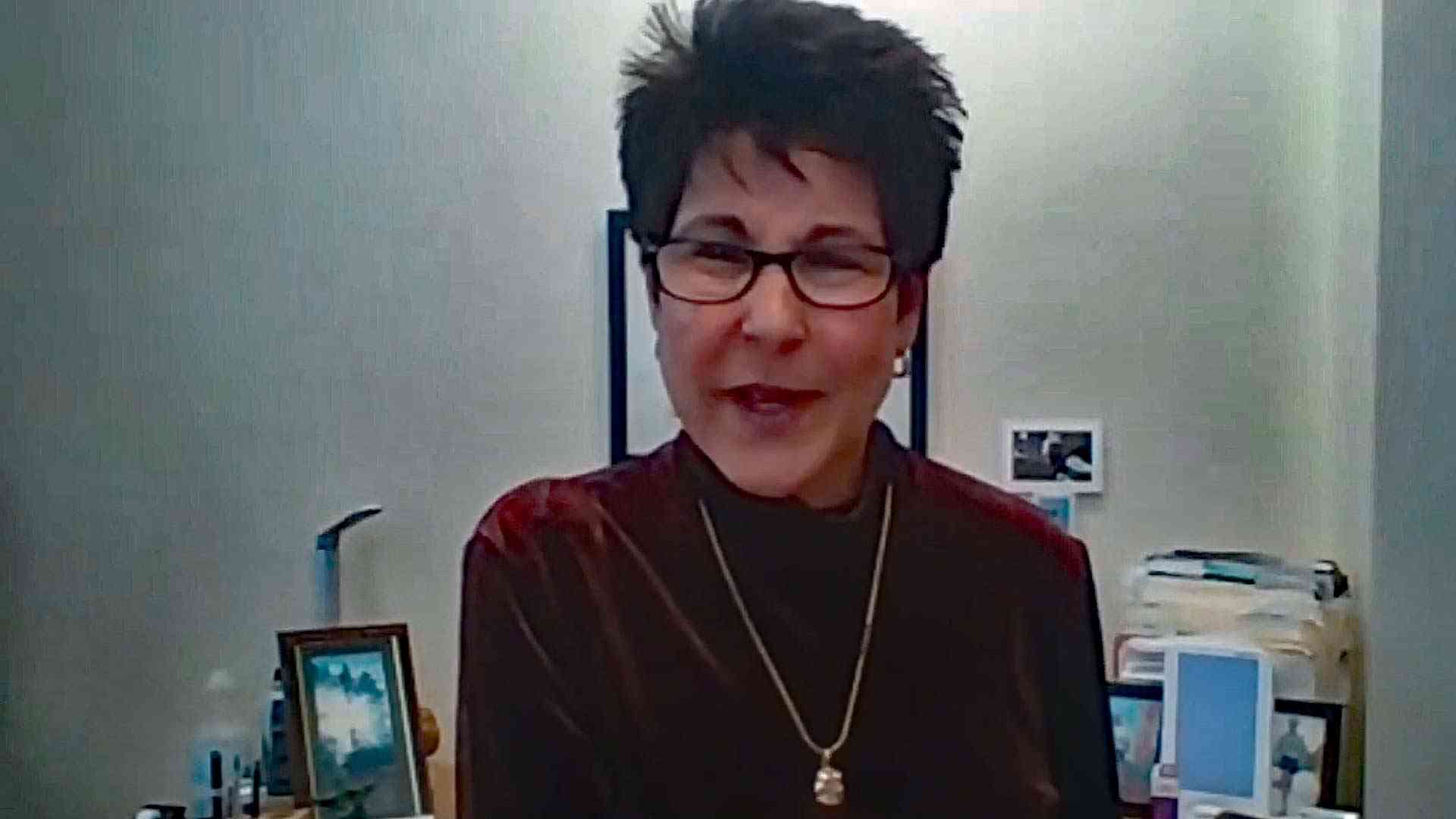
According to the president of the Mat-Su Health Foundation, Elizabeth Ripley, the reason nearly 60% of Mat-Su residents have thus far declined the experimental Covid shots is not because of thoughtful research, but irrational and emotional fixations on anti-vaccine “tribalism.”

Ripley was participating in a Jan. 25 virtual conference with Alaska’s Chief Medical Officer Anne Zink and Pfizer’s director of vaccinations in Alaska, Dr. Tracy Foo.
Ripley lamented how difficult it was to convince Mat-Su residents to get the jab.
“In our borough and state, we have a culture of distrust around immunizations that we’ve been trying to address for years,” she said, adding that some media outlets are to blame for this.
But the other problem, in Ripley’s estimation, is local residents who share “misinformation” and refuse to get vaccinated due to “tribalism and our need to emotionally identify and belong to a group of people – it influences our thinking and filtering of information.”
Ripley’s comments came during a one-hour panel discussion hosted by a left-leaning policy group called State of Reform.
“We often know what’s good for us, but we don’t do it,” Ripley continued. “Our emotional needs – how we feel about something, and also our need to belong – it often trumps reason and rational thinking. And I’m not being judgmental here. Our need to belong is that significant.”
“State medical boards should be censuring doctors who promote misinformation about vaccines. It’s that straight forward, and considering revoking their license,” Ripley said.
To illustrate her point about how irrational Mat-Su residents can be, Ripley remarked that Mat-Su Regional Hospital requires its unvaccinated employees to get tested every week. She said there were some employees, however, who chose to test even after receiving the vaccine, something the hospital did not require. Ripley interpreted these voluntary tests as evidence that employees believed it was “more important to show or to put a front on that they were identifying with this unvaccinated crowd even though they were vaccinated.”
She then blamed “local radio stations” and politicians for fomenting “identity politics” and claimed that legislation combating mandatory jabs is nothing more than a ploy to reinforce this identity. Ripley said one radio station in particular refused to air her pro-vax ads. As a result of these types of actions, she claimed thousands of people are now dying across America.
Overall, Ripley said people don’t evaluate risks very well “on their own,” and that “denial” interferes with their ability to accurately weigh risks and rewards.
“It has definitely affected people’s willingness to get the vaccine,” she said.
Ripley added that social media giants are also to blame for allowing users to circulate what she called “misinformation” about Covid shots.
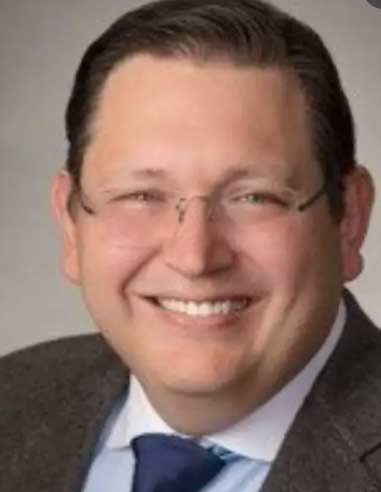
As for doctors who speak ill of the experimental jabs, Ripley indicated she supports state intervention to pull physicians’ licenses.
Doctors who engage in what she deems “misinformation” only contribute to the problem, Ripley suggested. She highlighted the fact that during the recent state-sponsored Alaska Health Summit in early January the president and CEO of de Beaumont Foundation, Brian Castrucci, advocated for disciplining certain doctors.
“He said state medical boards should be censuring doctors who promote misinformation about vaccines. It’s that straight forward, and considering revoking their license,” Ripley said. “He had a very strong call to action of how we need to address misinformation coming from select doctors in the medical field, particularly about vaccinations.”
Zink, who is very much in favor of the Covid jab, actually pushed back against this position, saying there should be “freedom of speech for providers and patients because one size doesn’t fit all” and disciplining doctors for taking another approach would further build mistrust in the government.
“That being said there are people who are making money off of misinformation and disinformation, and when people are having profit-gain, be it from a pharmacy company or from misinformation, I think that needs to be investigated,” Zink said.
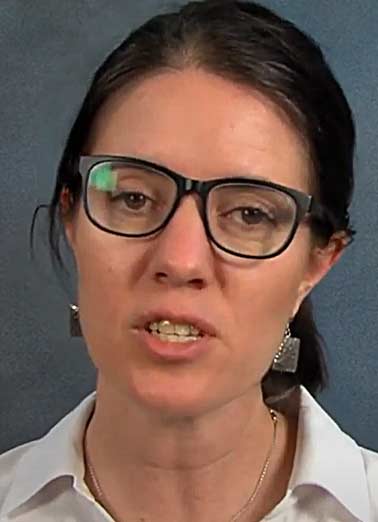
The panel conversation began by discussing a Jan. 10 U.S. Census poll that examined the reasons why some Alaskans have not submitted to the Covid shot. Among those who have declined the experimental jab, the poll found the most common reasons are concerns about side effects (59%), not seeing a reason for the shot (54%), not trusting the shot (47%), not seeing Covid as a “big threat” (42%) and not trusting the government (38%).
Zink said she hoped to combat these points by enlisting “trustworthy” community leaders such as spiritual advisors, elders and pastors – encouraging them to use their influence to promote Covid shots and build what she called “vaccine confidence.”
She also said it was important to carefully craft messages that appeal to Alaskans, so as to build a “tribe of Alaska” around the Covid shot narrative.
Foo noted that some groups “don’t have a lot of trust in government,” and that it was important to ensure that local doctors are sharing information to convince patients and “help them get more comfortable in getting vaccinated.”
Another difficulty the panelists discussed was the fact that the science on Covid is constantly changing.
ALASKA WATCHMAN DIRECT TO YOUR INBOX
Foo said it is important to be “adapting messaging over time.”
“It doesn’t say we don’t know what we’re talking about,” she said. “it’s just that we are following the science and being able to explain the newest and latest information we have.”
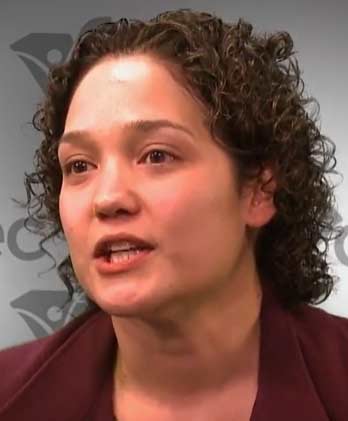
Foo added that many people simply don’t understand how vaccines are developed because it’s a “very complicated process” that most of the time “people don’t really think about.”
She later acknowledged that many Americans are concerned about how fast the shots were developed, and said it is important to reiterate that clinical trials were not skipped they are just being “overlapped” to speed up the process. She admitted that clinical trials are, in fact, still underway and incomplete.
In looking back over her effort to maximize vaccination in Alaska, Zink said it was initially a “really fun time” because people appeared excited to get jabbed.
“But as people had questions that sort of changed,” Zink lamented. “It sorted to not become as much of an access issue.”
Zink shared a slide with her fellow panelists, showing that 66% of unvaccinated adults think vaccine requirements are a “greater threat to health and safety than being exposed to covid, and 77% “don’t trust the federal government’s guidance about vaccines.”
TAKING ACTION
— Click here to watch the one-hour video between Zink, Ripley and Foo.
— To contact Mat-Su Health Foundation President and Chief Executive Officer Elizabeth Ripley, email eripley@healthymatsu.org or call (907) 373-2805
— Click here to contact other members of the Mat-Su Health Foundation administration.
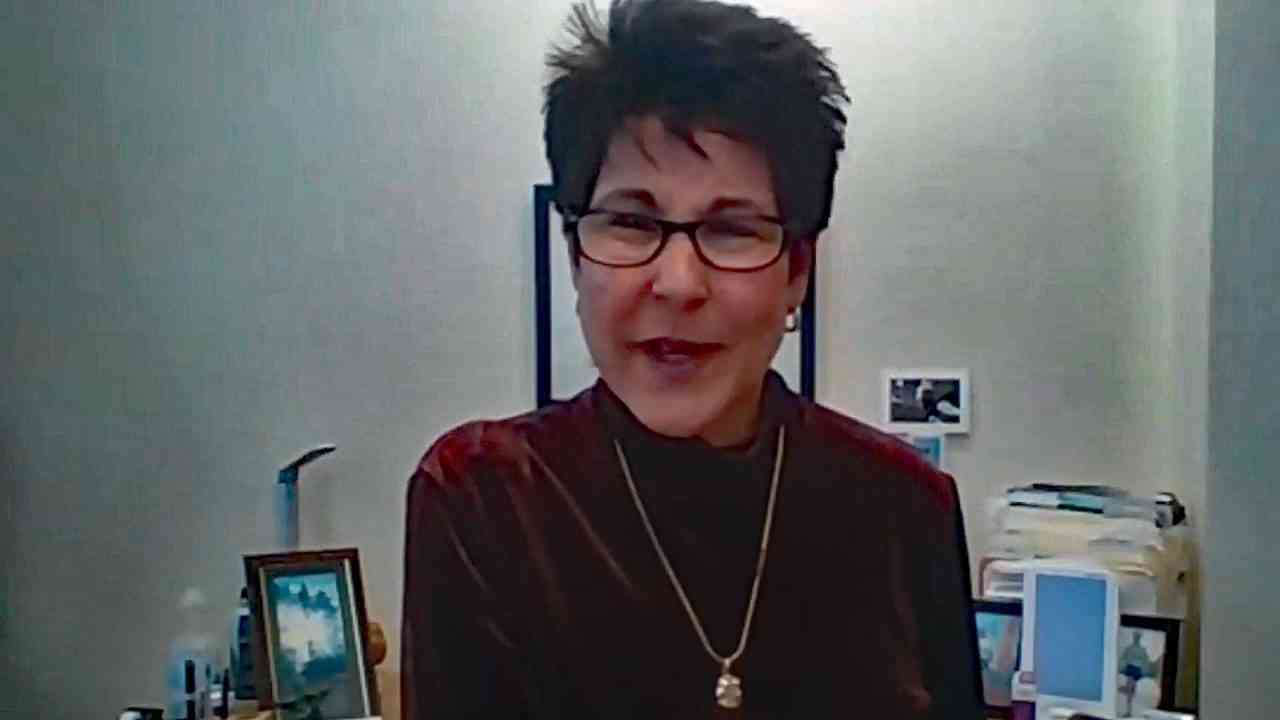







57 Comments
Why should they be surprised when Tribalism is where they keep pushing us?
She needs put in prison. If the recent CDC disclosure didnt change her mind – nothing will. She is no better than the crying nurses of Nazi Germany. She should be tried, and hanged – end of story. If they worked, and they were safe – you wouldn’t need to convince anyone. They do not, they are not.
The true science is constant question of efficacy, of cause and effect etc., ‘believe it or not Ripley’ you sold out to your oaths (at least do no harm) are the head in the sand tribes. You are the ones making billions of dollars in masks alone. I hope you invested! WE the people are comparing the info/facts from Dr. Malone: leader of the mRNA teams. of decades long respected doctors and researchers who Disagree with you guys! Of hospitals who make big bucks on COVID-19, of so called 3rd world nations who use Hydroxychloroquine and Ivermectin (*over 5 billion doses, less that 6k adverse reactions (not horse pills!!) and won the Nobel Prize. Every time these dissipated so called professionals keep pushing this unproven biologic agent, still not FDA approved! They prove they just want US to COMPLY! Or off the the gulag! Go back to science, ethics.
I watched it as well. Go to State of Reform.com to view. BTW, I looked at past video titles and other information on legislators, this in my opinion is a far left site.
Dr Zink was more measured and yes, Joel is right, she pushed back on Elizabeth Ripley on the attack of Docs that don’t promote the jab. Ripley didn’t respond back in any meaningful way, much less pull back on her attack.
Elizabeth Ripley, why are you so afraid of hearing the other side of the answer? We get it that you are sold on the vaccine. You don’t want to hear it’s expiramental or it has side effects or anything else. If anyone is giving out misinformation it’s you! Tell us how being a ginney pig for testing some bacteria for government warfare is good for the people? Tell us how infertility, still births, and all the other side effects out weigh the expiramental good that will come from this vaccine again. Just because you probably are for murdering babies(abortion) I’m not. I’ve also heard that now men are becoming sterile from the vaccine. I just don’t see any good coming from getting your vaccine. By the way how about those cruise ships? Everyone had to be fully vaccinated to get on board and show their pass port. Well,, how did that help? How many people ended up with covid on them? It proves your vaccine needs to go back to the drawing board and find a new vaccine that will either protect people or eliminate the virus. The ball is in your court.
So, to sum it all up, they think us peasants are illiterate idiots, incapable of researching information from reliable sources which present a different and verifiable set of data and facts. Their delusional pompous self-grandeur prevents them from having the mental clarity to grasp that people (again, us lowly and “tribal” peasants) might actually have informed intelligent decisions of our own. And how dare we! Don’t us peasants know that these demi-Gods are superior to us? I especially enjoy the use of the term “tribal” as a derogatory connotation, in a state filled with persons who identify as members of various tribes in the true (and non-derogatory sense). Word of advice for these clueless, condescending, patronizing jackals: KNOW YOUR AUDIENCE. Talking down to people isn’t helping your agenda.
Elizabeth Ripley and Zink needs to go. Leave the good doctors alone. This so-called vaccine is experimental it does not prevent covid. The side effects is not worth the risk.
apparently you didn’t read the article, nor listen to the event. Zink is against punishing doctors.
Zink may be against punishing doctors – which is the smart thing to do since they are the ones following their oath of office to help Alaskans with Covid BUT she still pushed and pushed the jab.
Follow the money, resveratrol-$3000…Ivermectin- $.02 . Can’t make money on a 50yr old proven safe drug. Hospitals receiving covid bucks bonus money vs non-covid patients. Let’s see some transparency of there financial scheme. Don’t get Faucched.
Remdesivir -reveratrol is actually really good for you
Just ask the world health org. Rwmdesivir destroys the kidneys and liver.
https://www.who.int/news-room/feature-stories/detail/who-recommends-against-the-use-of-remdesivir-in-covid-19-patients
https://www.nbcnews.com/health/health-news/remdesivir-shouldn-t-be-used-hospitalized-covid-19-patients-who-n1248320
Multiple Organ Failure , Acute Kidney Failure , Septic Shock ,Hypotension
The radical lunatic leftist should try it more often.
Senator Ron Johnson just did a round table with whistle blowers and doctors and Three military doctors say medical billing code data captured by Defense Medical Epidemiology Database shows sharp spikes in miscarriages, myocarditis, cancer diagnoses, Bell’s palsy, female infertility.
According to the data found by the military doctors, there was also a nearly 300% increase in cancer diagnoses, from a 38,700-per-year average in 2016-2020 to 114,645 in 2021. Just maybe Dr. zinc And Dr. Ripley need to do their own research and stop taking data from people making money from it.
I saw the clip where they said this, so i went to lbry to see entire 4 hour conference. They invited pfizer and government and such but no one showed. Now our health people meet amongst themselves and don’t invite any discussion! “Ignorance” defined!
When you have people like this talking down their noses to ‘tribalist’ individuals who are capable of independent thought you wonder why we don’t trust you? Maybe it’s because the data sets coming out of Europe and Israel are telling a different story about the shots than what we are getting in the U.S. We’re able to read and decide for ourselves whether or not this is a good idea. The military version of VAERS is also show some real bad data from people who have received this shot as well.
Clinical trials are still underway and incomplete. I do believe the general public who have received the jab are the clinical trials. How many will need to die from it before it’s complete?
Does the woman live in a box? Does she wear blinders and earplugs? Truly, the number of vaccinated people getting Covid, particularly the Omicron variety, I would speculate, may even now be as high as the unvaccinated. Right now every single person I know with Covid was vaccinated. They are sick, and miserable, with what appears not much difference from their unvaccinated peers. We live in a free country Ms. Ripley, in case perhaps you were unaware, living in that box….. indeed there is evidence the vaccine lessens severity, but it certainly does not prevent well the virus. Allow people to make their own decisions and Matsu Regional should be testing everyone, vaccinated or not! Many health providers are already doing so. Seems Matsu Regional may be sharing that box….?
Elizabeth: here’s the core problem with your posted grievance and nearly every hair-on-fire comment on this website: you “speculate”. You’ve no evidence, no data, no rational information, no proof and thus your assertions are just an emotional complaint and wholly unpersuasive.
Remdisivir not the extract of wine grapes! Try to maintain accuracy when critiquing those tyrants! Cheers!
You are the problem….You and the cultist non thinking blind Leftist that do nothing but come on conservative sites
to prove how toxic your mind truly is on reality. But keep posting please you show many theater side of the scale and
who we are in this war against.
wears a tin foil hat….brain located?
Well said Elizabeth, what inflames the vax issue is lack of long term data, it doesn’t exist yet people line up like sheep, oblivious.
This has me so angry I feel the need to post again. Just like for months and months no data regarding natural immunity was forth coming. Albeit evident to those of us that face reality and pay attention, natural immunity was proving to have far better ‘efficacy’ than the vaccine. Now, the same vaccine cult is withholding how many vaccinated people are getting Covid. You see no information. The likes of Ms Ripley would have us think you will die, and kill others, if you remain unvaccinated. She pretends that vaccinated people with Covid are no danger to others? That they simply do not get sick or end up in the hospital. She has bought the cultic lie. And then blames us for being tribal. The pot calling the kettle black.
Another Radical leftist with delusional clouds of doom and gloom because they are affected by loss of normal mental clarity. Paid off by Big Pharma?
Why don’t ya all challenge America’s Front line Doctors regarding the safety of the Covid-19 shot? America’s Front-Line Doctors have a tremendous amount of evidence about the side effects from the Covid clot shot!!
Why don’t ya’ll challenge the whistle blowers from the U.S. Department of Defense?
They also have a tremendous amount of evidence, that shows the covid-19 clot shot is NOT SAFE! It currently being investigates by Congress. People can watch the Congressional Hearings on C-Span.
You lunatics cannot make us get a shot that is not proven to be safe!
The Sensible, Logical people are THE TRIABALISM, AND THE MAT-SU LUNATICS ARE THE , “IRRATIONAL LUNATICS” THAT NEED TO GO!!
GO BACK TO THE COWS! (CA, OREGON, WASHINGTON)
“We The People!” “Let’s Go Brandon!”
Tribalism could be seen as an institution of God, from the DESTRUCTIVE irrational leftist LUNATICS that are trying to destroy America with their lies, and immorality!
Trust the government? That means ignoring history.
What part of NO don’t they understand!
So….Ripley is asking the State Board to remove her license for promoting misinformation on vaccines????
Yes, Anne Zink, it is VERY concerning when ANYone entertains a profit margin through the use of “misinformation” or “disinformation” (what most members of my tribe simply call “lies”): https://www.lifesitenews.com/news/top-pfizer-and-moderna-shareholders-made-10-billion-in-one-week-after-omicron-hits/
I did some reading. The Matsu Health Foundation has 5 of the 10 Board members of the Matsu Regional Hospital.
I will be trying to find out about Board meetings of both, when and if open to public. Once I find that out and/or Joel see what you can find out, I will be posting that information as wide as I can.
We go to assembly meetings, we testify to legislative committees, but yet these boards are the ones that hold hostage patients and patients families! If we can, and I do believe we can, we need to put the same heat that we do with other government assemblies/legislature, and I would say even way more!
We need to be smart on this, but the hospitals will do as they wish until they get such pushback that they can’t stand the heat!
Here are the links to the two boards
https://www.matsuregional.com/board-of-directors
https://www.healthymatsu.org/contact-us
https://youtu.be/t6kmm70ji5c
Maybe Mat-su Health should look at the numbers from Hillsdale
If that’s what she believes then I’ll stick with tribalism. Elimination of freedom of speech and instilling censorship is akin to how Hitler managed information and took control, thankfully we have measures in place here in America to prevent the rise of such ideology. God bless this country and hang in there folks! We’re starting to see the rats expose themselves while the narrative crumbles.
“Our emotional needs – how we feel about something, and also our need to belong – it often trumps reason and rational thinking. And I’m not being judgmental here. Our need to belong is that significant.”
If your a sheep and you want to belong, go over to the cliffs edge now. The sky is falling!!
I’m in the group where we think for are selfs, it’s my choice. Not some woke controlling group of loser’s
No shot or mask wearing for me and my family
To fire Anne Zink and put an end to this Covian Cultism we’ll have to fire Gov. Dunleavy.
Yup
YET another vax death cultist. Great. Fire her and get someone that actually believes in science and not how many people it will kill or how much money will be pumped into her bank account from big pharma for crowing their narrative.
She can take her disinformation and shove it up her tribalism.
Is it possible that Ripley has a financial stake in the kill shot? How else do you explain her extraordinary “frothing at the mouth” enthusiasm for this fake vaccine and her unadulterated hatred for those disinclined to take it?
I am disgusted at how they manipulate elders into killing us with this poison. Zink plans to do it even more.
Zink said she hoped to combat these points by enlisting “trustworthy” community leaders such as spiritual advisors, elders and pastors – encouraging them to use their influence to promote Covid shots and build what she called “vaccine confidence.”
She also said it was important to carefully craft messages that appeal to Alaskans, so as to build a “tribe of Alaska” around the Covid shot narrative.
I belong to the Human Tribe…perhaps we’re smarter than the average tribe!! Anybody want to join me??
Remember the Tuskegee Experiment where the US government injected syphilis into BLACK “volunteers”. Many died. Why trust the government?
Tribalism is code for GOD Given intuition to the satanic cult of Pharmakia.
This is yet another example of how higher educated individuals who forgot to use common sense. A degree to some means they have accomplished memorization and repetition skills. And they use word salad.
The people of Mat-Su are individuals who possess the ability to research and evaluate for ourselves. A large proportion of us are not easily influenced by scare tactics and pseudo science.
The so-called “vaccine” is an experimental drug. The trails period doesn’t end until 2023. Everyone taking the shot is a guinea pig in this experiment. It is NOT effective. It is NOT safe. Worldwide, there are millions of injury reports to prove it.
The person stating it is “tribalism” responsible for a low vaccine rate must not know that the largest “vaccine hesitant ” group is the PhDs. Why?
BECQUSE THEY KNOW THE SCIENCE.
That is a direct quote from Dr. Christina Parks, PhD, in the Michigan State hearing held August 2021.
As for this “tribalism” claim because the valley isn’t cooperating with the government plan?
That is one of the dumbest remarks utilized to explain why the vaccine coercion is failing that I’ve read.
She needs to visit China and perhaps live there.
Did Joel check Ms Ripley’s education background? I read the article twice and did not see any medical training listed. But if she also sits on the Mat-Su Hospital board, then her major was in English at Yale. Pretty much explains her lack of medical knowledge and the leftist views.
Ripley is just another talking sheephhead who’s opinion really doesn’t matter. The most concerning fact to me is why would Anne Zink and her liberal supporters think that it is OK bring in a Big Pharma Executive to push their version of the truth? This is like inviting the wolf to your discussion on how to protect the henhouse.
The Folly of Pandemic Censorship
As the latest anti-Substack campaign shows, more and more people are forgetting why free speech works
This article pretty much nails the issue.
Censors have a fantasy that if they get rid of all the Berensons and Mercolas and Malones, and rein in people like Joe Rogan, that all the holdouts will suddenly rush to get vaccinated. The opposite is true. If you wipe out critics, people will immediately default to higher levels of suspicion. They will now be sure there’s something wrong with the vaccine. If you want to convince audiences, you have to allow everyone to talk, even the ones you disagree with. You have to make a better case. The Substack people, thank God, still get this, but the censor’s disease of thinking there are shortcuts to trust is spreading.
Follow and Share
@RWMaloneMD
https://taibbi.substack.com/p/the-folly-of-pandemic-censorship
WHAT IS THE MEANING OF IRRATIONAL?
Biden’s speech on 1-29-22
MY STOMACH ACHES FROM LAUGHING SO HARD- AND THIS MAN IS OUR PRESIDENT?
There is seriously something wrong with him!!! OMG!!!
Copy and paste to watch this.
https://crooksandliars.com/2022/01/biden-erupts-unaffordable-meds-strips
Ten years ago, the following video shows what a united democrat and a republican looked like.
Today we have radical LUNATIC democrat NUT JOBS raping America!! We will stop it!
Oct 10, 2012
2,472,418 views
Google: Americans – a Public Service Film by Kid Rock & Sean Penn
Warning: Harsh language
LETS GO BRANDON!
Any one who believes we must sacrifice our children and ourselves upon the unholy alter of Phizer and destroy our faith in the almighty God, our constitutional , inalienable freedoms and autonomous rights as individuals, our religions, our economy, military, law enforcement, and front line medical personnel with an experimental unlicensed drug that is the farther from any form of any drug previously conceived as a vaccine with a never ending barrage sales pitch of safe and effective from severely compromised individuals with extreme conflicts of interest knowing full well, it cannot be safe as there cannot be any long term safety because the time required for safety will take well over ten years and so far what’s been verified concerning short term safety, especially for those whom have been injured or killed by these injections does not bode well for the long term experimental results looking forward! The effectiveness is totally nullified as it never stopped any viral effects but instead has turned into the main driver of the sickness among us! These lawless people, politicians, technocrats, and all associated with the pharmaceutical cartels should be subjected to and tried for crimes against humanity! What does it profit any man if he gains the whole world and all its riches at the palm of his hand if he loses his soul?
Are these people incapable of finding the huge number of people who have permanent heart damage, blood clots, strokes, continual seizures and worse? They are either massively compromised by financial interests or they’re a few bricks shy of a full load. Come to think of it, those two options are not mutually exclusive. Ms. Zink must be taking her cue from Margaret Sanger who enlisted clergy to help spread HER propaganda which ultimately resulted in more than 60 million dead babies. Abortion is now big business. Pharma is also big business and has no liability or accountability. So Zink now wants to use HER influence to get clergy to push experiments on children and adults including women carrying pre-born babies?! That’s medical, psychological and religious abuse!
In general I’ve found that the people who DO understand how vaccines are developed are the ones who are most skeptical of them.
100% wrong! I have more than researched! She should apologize for her statement. She acts like she is smarter but she isn’t. She needs to give facts of how many have been harmed or died from these experimental jabs!
Follow the numbers on the vax. Should you hey it or not. https://youtu.be/t6kmm70ji5c
How about when the manufacturers of the so called vaccine are willing to stand behind their product and be willing to disclose what it’s made of instead of trying to hide it from everyone! I’m not sure they could make themselves appear any more shady than l are looking now! The only people who could possibly be unaware of the dangers of taking this experimental vaccine are people who cannot read or have no access to the interwebs! The facts are everywhere!